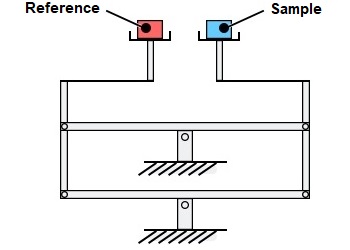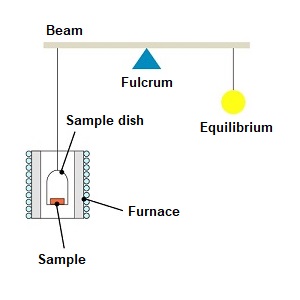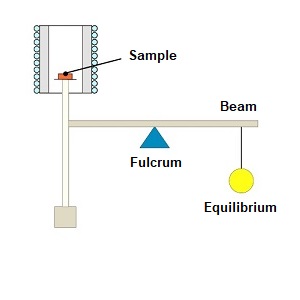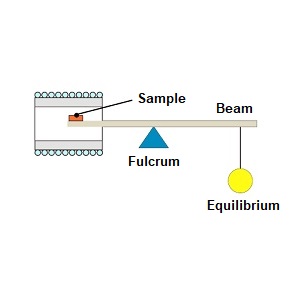Chapter 3: Types of Thermogravimetric Analyzers (TGA)
There are three types of thermogravimetric analyzers: suspension system, top-loading system and horizontal system.
Structures and Features
| Suspension system | Top-loading system | Horizontal system |
|---|---|---|
|
|
|
|
| A sample is suspended from the analyzer. | A sample is placed above the analyzer. | A sample is placed at the edge of the analyzer. |
|
|
|
In general, baselines drift in TG analysis when temperatures fluctuate due to changes in buoyancy and convection by heating. (Weight signals change even if the amount of sample does not change superficially.) In order to avoid baseline drifts, analyzers with differential structures are often used in each system.
What is a Differential Structure?

Example of DTG-60 Differential Thermal Analyzer with Top-Loading System
The following image shows the structure of a top-loading differential analyzer.
As shown in the image, when a sample and a reference are placed on sample trays (temperature sensors) located at both edges of a beam and heated, a weight difference between the sample and the reference is detected as a signal. Since buoyancy and convection are applied equally to them, the force is offset to remove the baseline drift.





